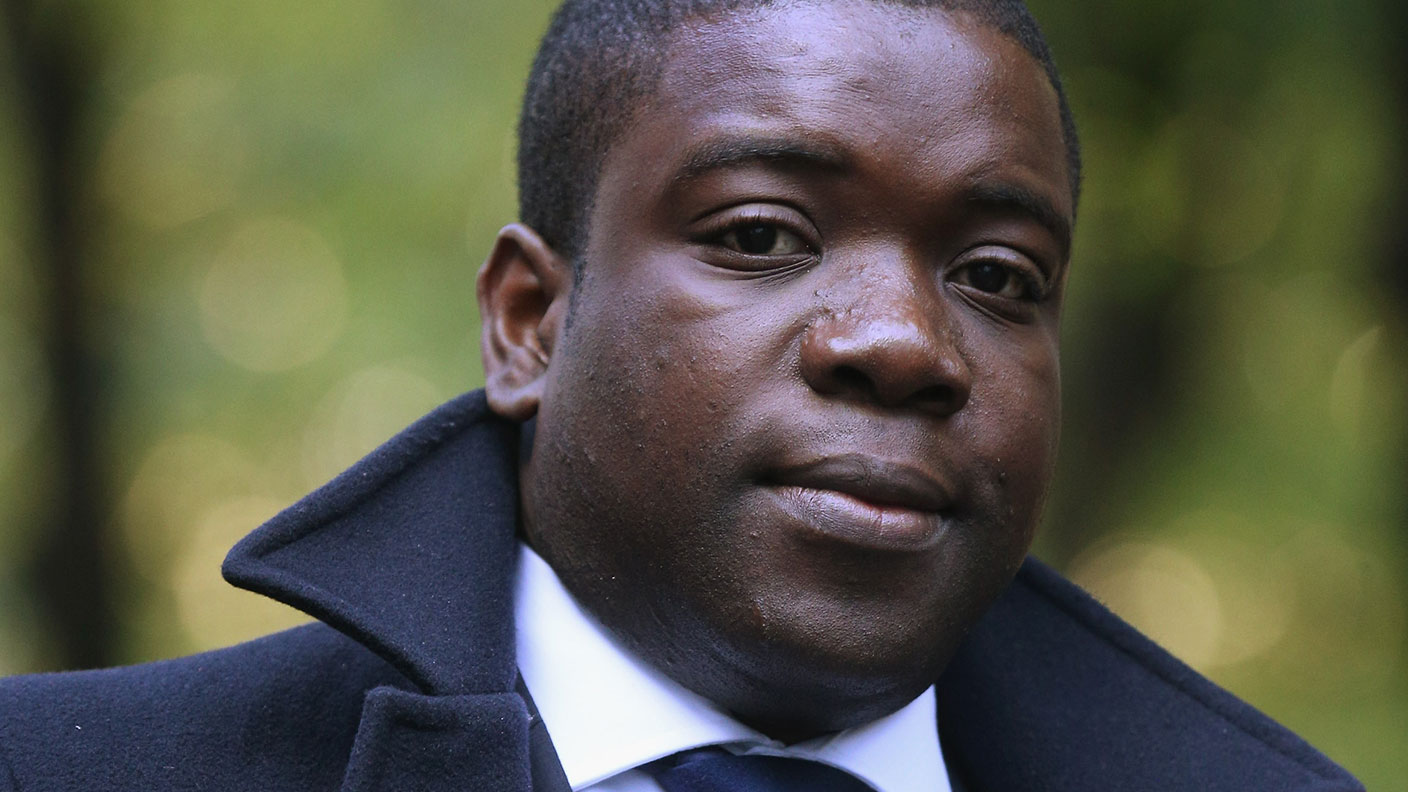Great frauds in history: rogue trader Kweku Adoboli’s £1.4bn loss
Kweku Adoboli's risky trading and his desperate attempts to cover it up wiped £2.7bn off UBS’s market capitalisation.


Get the latest financial news, insights and expert analysis from our award-winning MoneyWeek team, to help you understand what really matters when it comes to your finances.
You are now subscribed
Your newsletter sign-up was successful
Want to add more newsletters?
Kweku Adoboli was born in Tema, Ghana, in 1980, the son of a United Nations diplomat. After spending time in various countries, he moved to the UK with his family in 1991. He studied at Ackworth School in Yorkshire, then did a degree in e-commerce and digital business studies at the University of Nottingham, graduating in 2003. He then got a job at investment bank UBS, starting in an administrative back-office job before moving to a senior role on the bank’s trading team on the desk dealing with exchange-traded funds.
What was the scam?
As well as executing client orders, Adoboli’s team was also allowed to risk the bank’s own money on positions. However, Adoboli began making bets that far exceeded his risk limits, exploiting holes in the system to cover up the amount of risk he was taking, as well as the money that he was losing. He booked fictitious trades in the opposite direction to the positions that he was taking, giving the false impression that he was hedged (that is, that the fictitious trades would offset any profits or losses on his real trades).
What happened next?
Initially, Adoboli’s trades worked, making net profits of $40m in 2009 and 2010. However, in the market turbulence of the summer of 2010, he sustained huge losses that at one point stood at £7.5bn. Although he managed to claw back some of the money, it became clear that the remaining losses would be too large to hide. Facing an investigation from the bank, he confessed what he had done in September 2011 and was arrested. He had racked up the largest unauthorised trading losses in British history. Despite arguing that UBS was aware of his acitivities, Adoboli was convicted of fraud and sentenced to seven years in jail.
Try 6 free issues of MoneyWeek today
Get unparalleled financial insight, analysis and expert opinion you can profit from.

Sign up to Money Morning
Don't miss the latest investment and personal finances news, market analysis, plus money-saving tips with our free twice-daily newsletter
Don't miss the latest investment and personal finances news, market analysis, plus money-saving tips with our free twice-daily newsletter
Lessons for investors
Adoboli’s losses ran to about £1.4bn, and news of the fraud wiped £2.7bn off UBS’s market capitalisation. Its share price still hasn’t fully recovered, suggesting that fraud can sometimes be a symptom of poor underlying management. Adoboli claimed that most of his losses stemmed from being talked into reversing a short position prematurely by the rest of his team, but he also lost large sums of money through his personal spread-betting activities and, despite a six-figure salary, was dependent on payday loans. Making large risky bets while running up debt is rarely a good idea. Doing it with your firm’s money without its knowledge, even less so.
Get the latest financial news, insights and expert analysis from our award-winning MoneyWeek team, to help you understand what really matters when it comes to your finances.

-
 Student loans debate: should you fund your child through university?
Student loans debate: should you fund your child through university?Graduates are complaining about their levels of student debt so should wealthy parents be helping them avoid student loans?
-
 Review: Pierre & Vacances – affordable luxury in iconic Flaine
Review: Pierre & Vacances – affordable luxury in iconic FlaineSnow-sure and steeped in rich architectural heritage, Flaine is a unique ski resort which offers something for all of the family.
-
 The downfall of Peter Mandelson
The downfall of Peter MandelsonPeter Mandelson is used to penning resignation statements, but his latest might well be his last. He might even face time in prison.
-
 Ayatollah Ali Khamenei: Iran’s underestimated chief cleric
Ayatollah Ali Khamenei: Iran’s underestimated chief clericAyatollah Ali Khamenei is the Iranian regime’s great survivor portraying himself as a humble religious man while presiding over an international business empire
-
 Long live Dollyism! Why Dolly Parton is an example to us all
Long live Dollyism! Why Dolly Parton is an example to us allDolly Parton has a good brain for business and a talent for avoiding politics and navigating the culture wars. We could do worse than follow her example
-
 Michael Moritz: the richest Welshman to walk the Earth
Michael Moritz: the richest Welshman to walk the EarthMichael Moritz started out as a journalist before catching the eye of a Silicon Valley titan. He finds Donald Trump to be “an absurd buffoon”
-
 David Zaslav, Hollywood’s anti-hero dealmaker
David Zaslav, Hollywood’s anti-hero dealmakerWarner Bros’ boss David Zaslav is embroiled in a fight over the future of the studio that he took control of in 2022. There are many plot twists yet to come
-
 The rise and fall of Nicolás Maduro, Venezuela's ruthless dictator
The rise and fall of Nicolás Maduro, Venezuela's ruthless dictatorNicolás Maduro is known for getting what he wants out of any situation. That might be a challenge now
-
 The political economy of Clarkson’s Farm
The political economy of Clarkson’s FarmOpinion Clarkson’s Farm is an amusing TV show that proves to be an insightful portrayal of political and economic life, says Stuart Watkins
-
 The most influential people of 2025
The most influential people of 2025Here are the most influential people of 2025, from New York's mayor-elect Zohran Mamdani to Japan’s Iron Lady Sanae Takaichi